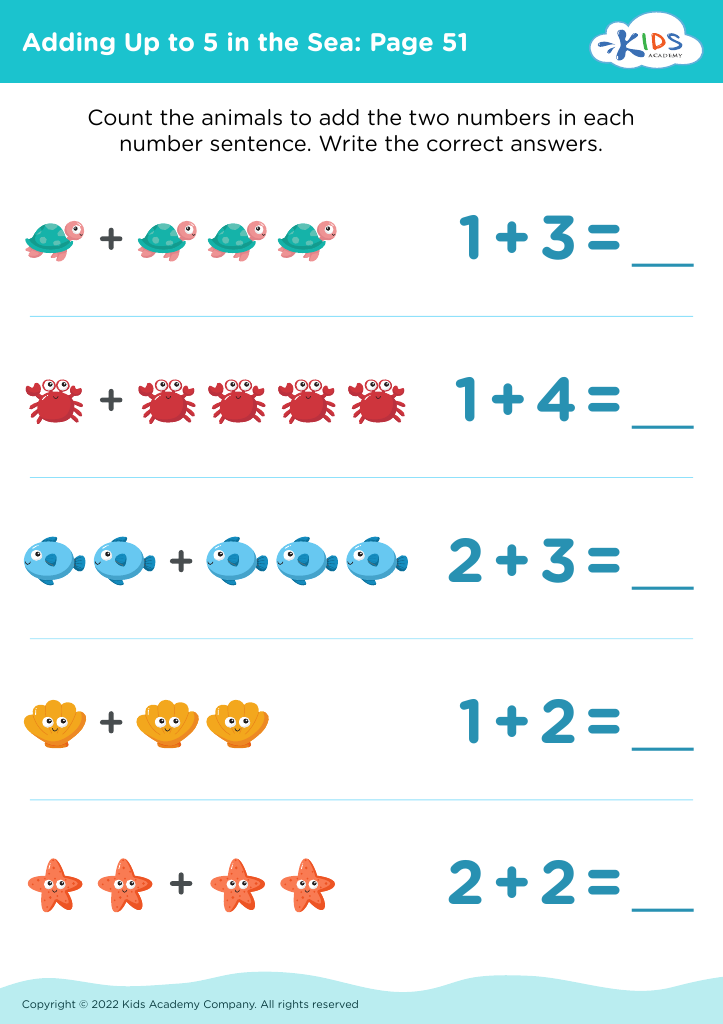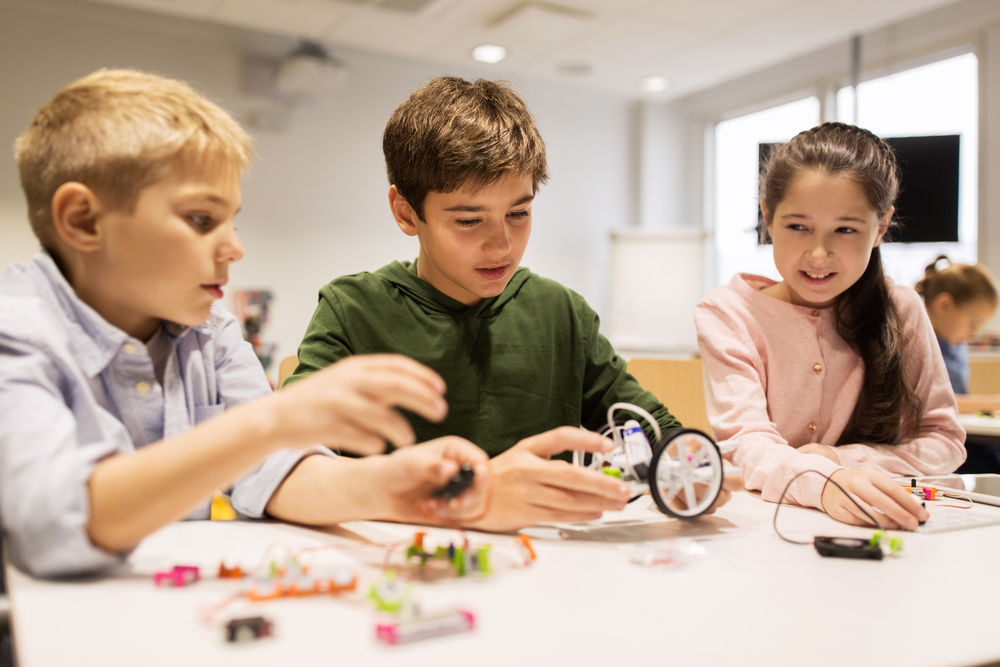Mental math practice Math Worksheets for Ages 4-5
7 filtered results
-
From - To
Boost your child's confidence with our fun and engaging Mental Math Practice Worksheets for ages 4-5! Designed specifically for young learners, these worksheets help build foundational skills in addition, subtraction, counting, and number recognition. Featuring colorful, kid-friendly images and interactive exercises, our worksheets make learning math both enjoyable and educational. Aligned with early learning standards, they provide a perfect balance between challenge and playfulness, ensuring your child develops strong mental math abilities. Perfect for home or classroom use, start exploring and watch your child’s math confidence soar! Download your free worksheets today and transform learning into a delightful experience!


7 Continents and 7 Seas Worksheet
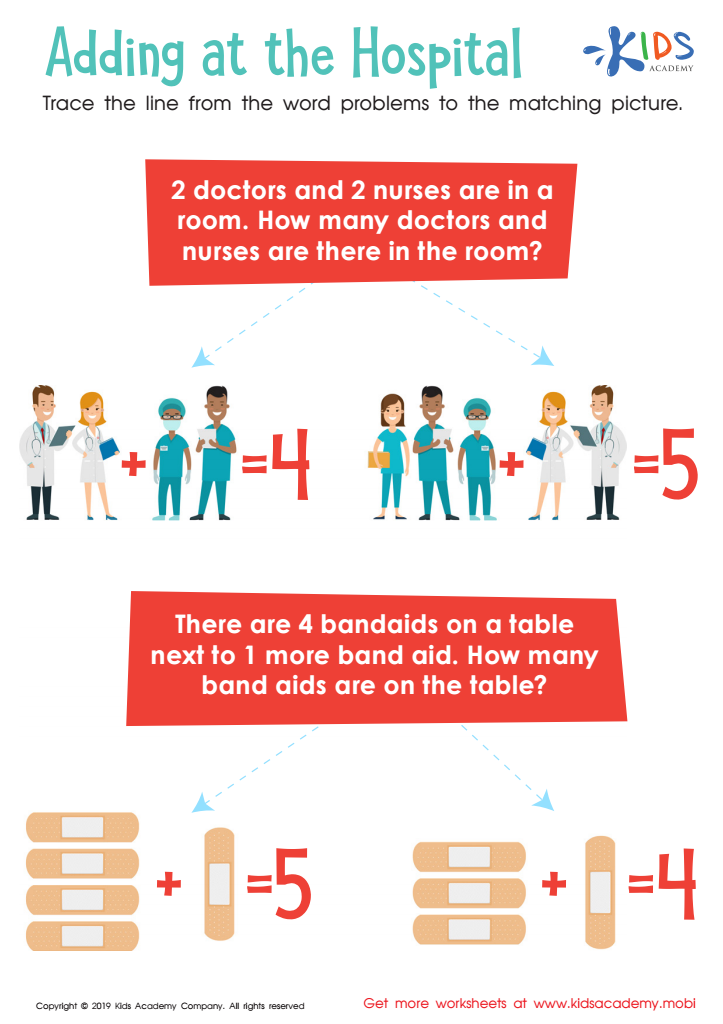

Adding at the Hospital Worksheet


Tricky Problems Worksheet: Part 2
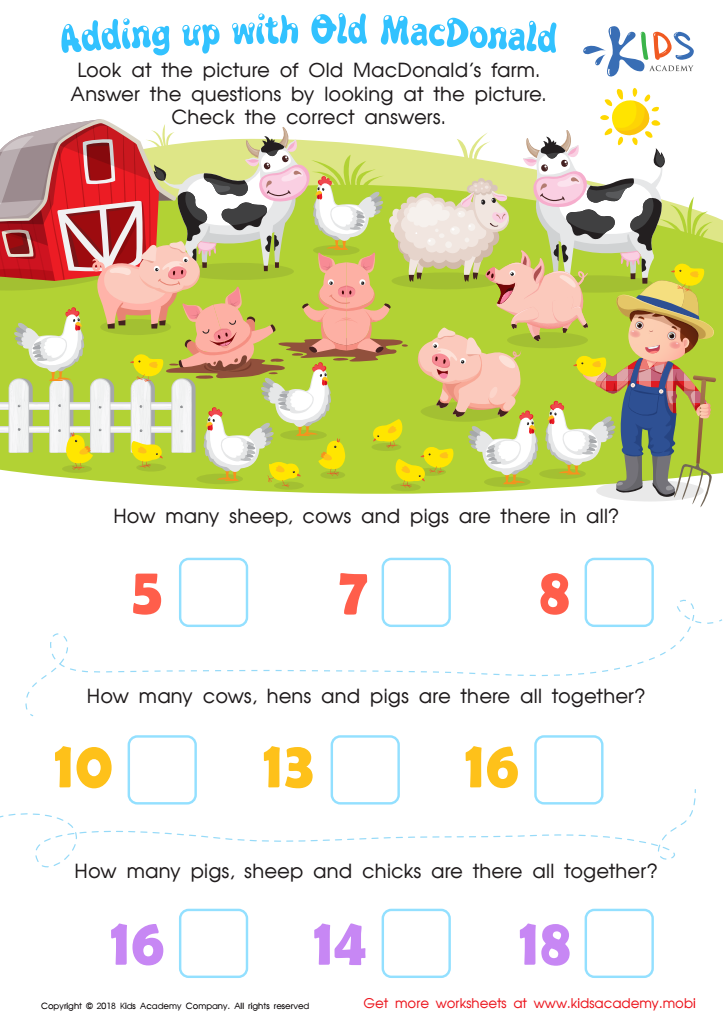

Adding Up with Old MacDonald Worksheet
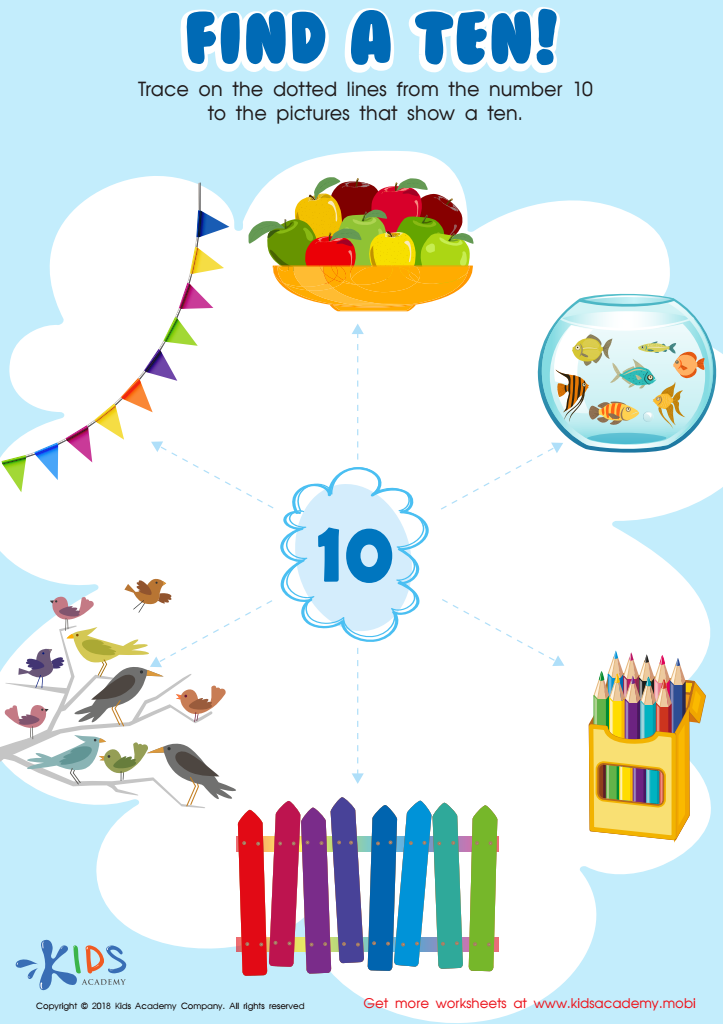

Kindergarten Math Worksheet: Find a Ten
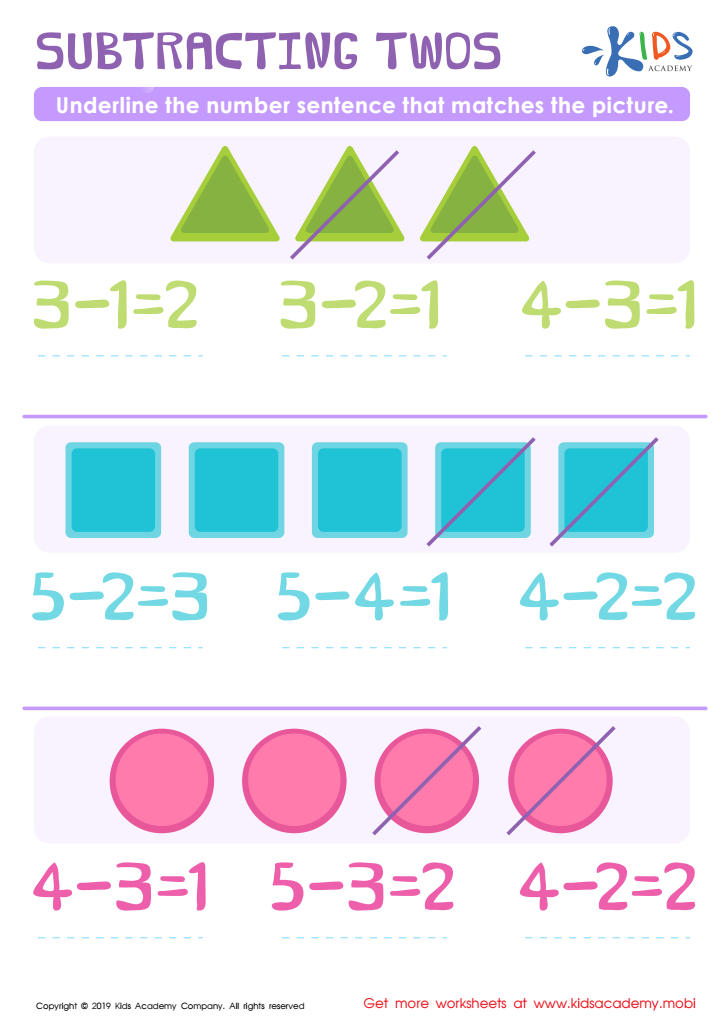

Subtracting Twos Worksheet
Mental math for ages 4-5 is foundational for several reasons that parents and teachers should prioritize. First, it cultivates a strong numerical sense in young learners, helping them understand basic concepts like addition and subtraction in a fun and intuitive manner. Introducing mental math early exposes children to different solving techniques, encouraging flexibility and creative thinking.
Second, mental math sharpens cognitive skills such as memory, concentration, and problem-solving. These skills are essential for academic success and general life skills. For instance, practicing mental math enhances working memory, enabling children to hold and manipulate information mentally without paper and pencil, which is beneficial in everyday scenarios like counting objects or understanding simple transactions.
Moreover, early mental math practice builds confidence and reduces math anxiety. When children become comfortable with numbers through playful and engaging activities, they are more likely to develop a lifelong positive attitude toward math and learning in general. Engaging, age-appropriate mental math reinforces a child’s ability to manage basic calculations quickly and accurately, laying a solid foundation for more advanced math concepts in later grades. Therefore, prioritizing this practice is vital for holistic educational development and fostering a love for learning.
 Assign to My Students
Assign to My Students

